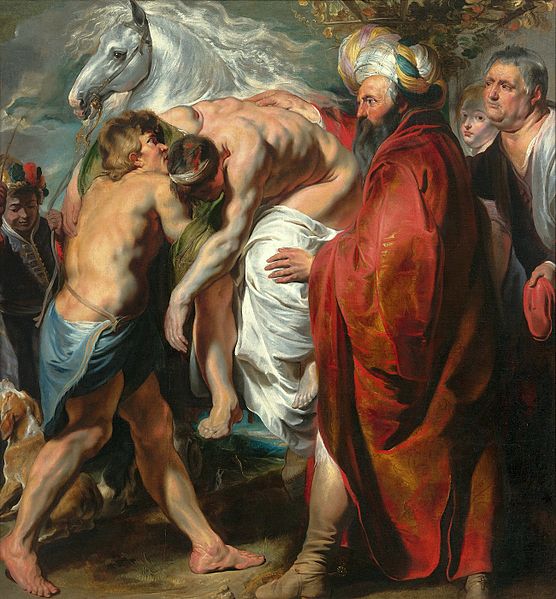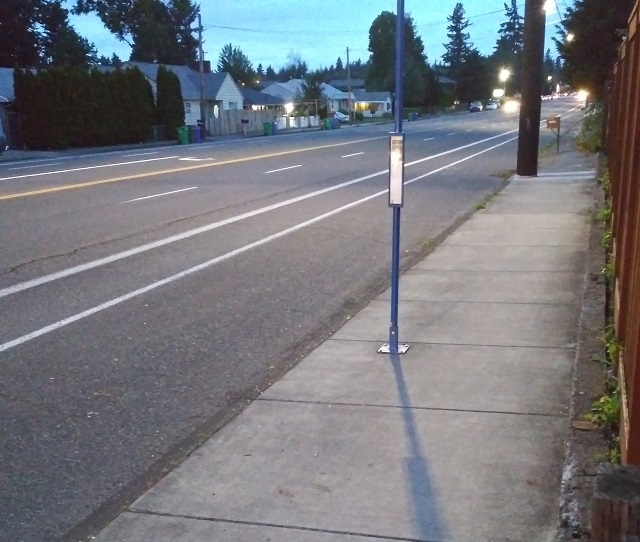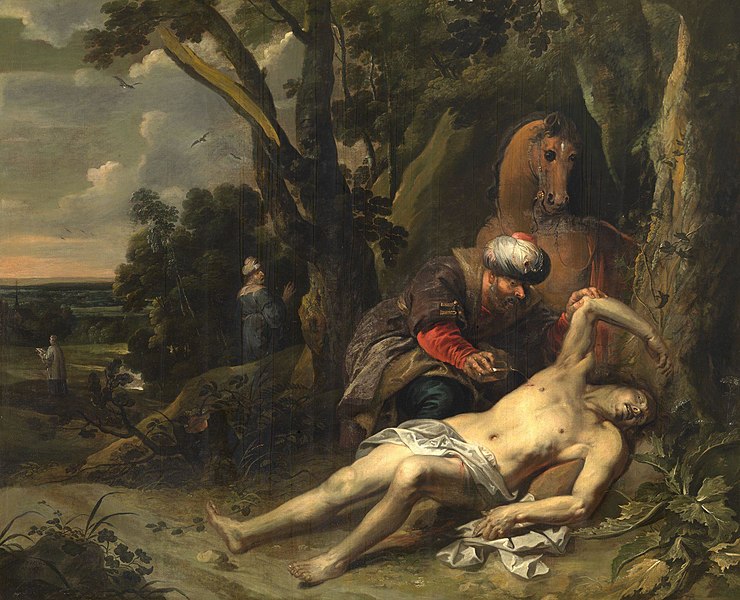Trigger Warning: The following article discusses religion and race. So, consider yourself doubly warned.
In my Bible readings, there is one aspect I keep coming back to. In the Gospels, Jesus conveyed his teachings through the use parables. Short, fictional stories that often left the listener with more questions than answers. He gave his reason for doing so in Mark 4:10-11, when his disciples asked about them: “He told them, ‘The secret of the kingdom of God has been given to you. But to those on the outside everything is said in parables[…]”
These vignettes weren’t just moral lessons, they were the only way Jesus could convey Divine wisdom, and his role in greater world. Some even straddled the line between allegory and fable. Oftentimes, they possessed more than one meaning. Such is the case with the Parable of the Good Samaritan in the Gospel of Luke.

For the sake of this write-up, I must transcribe it in its entirety:
On one occasion an expert in the law stood up to test Jesus. “Teacher,” he asked, “what must I do to inherit eternal life?”
“What is written in the Law?” he replied. “How do you read it?”
He answered, “‘Love the Lord your God with all your heard and with all your soul and with all your strength and with all your mind’; and, ‘Love your neighbor as yourself.’”
“You have answered correctly,” Jesus replied. “Do this and you will live.”
But he wanted to justify himself, so he asked Jesus, “And who is my neighbor?”
In reply Jesus said: “A man was going down from Jerusalem to Jericho, when he was attacked by robbers. They stripped him of his clothes, beat him and went away, leaving him half dead. A priest happened to be going down the same road, and when he saw the man, he passed by on the other side. So too, a Levite, when he came to the place and saw him, passed by on the other side. But a Samaritan, as he traveled, came where the man was; and when he saw him, he took pity on him. He went to him, bandaged his wounds, pouring on oil and wine. Then he put the man on his own donkey, brought him to an inn and took care of him. The next day he took out two denarii [two days wage] and gave them to the innkeeper. ‘Look after him,’ he said, ‘and when I return, I will reimburse you for any extra expense you may have.’
“Which of these three do you think was a neighbor to the man who fell into the hands of robbers?”
The expert in the law replied, “The one who had mercy on him.”
Jesus told him, “Go and do likewise.”
This parable struck a particular chord with me because I went through this exact experience a year ago. Like . . . exactly a year ago, to the day. At 1:30AM on June 15th, 2019, while returning home from World Tea Expo in Las Vegas—on my walk home from the light rail station—three young men followed me. They distracted me, flanked me, tripped me, punched me in the face repeatedly, and made off with my duffel bag full of tea samples from the trade show.
Luckily, they didn’t go after anything else on my person—like my suitcase, my wallet, or my phone—and they didn’t beat me any further once they procured said duffel bag. Even better; the bag wasn’t zipped all the way, and all the tea samples flew out onto the street.
They paused in shock for a moment, I managed one weak taunt, and then they ran away. With blood streaming from my nose, I called the police. But by the time they got to me, the assailants were long gone. The most frustrating aspect was that I was a mere corner away from the safety of my house when it happened.

When the EMTs and police officers left—dubbing me mostly intact, just shook up and stirred—I retired to an empty house. No one to talk to about it; not even roommates. My phone chimed mere seconds later. A friend and mentor in my tea circles texted me, making sure I made it home safe. I told her what just happened.
She immediately expressed condolences and concern, and wondered what the thieves absconded. I informed her that nothing of value was taken, save for a bamboo matcha whisk. (And my dignity.) There was a pause. Then she said that a new one was on its way to me in three days. She bought a new matcha whisk on the spot.
I relayed this story a month after the incident, but I left out some key details. Reason? I felt they weren’t relevant at the time. Well, a whole year later, they are more relevant than ever. For you see . . . the three men who attacked me were African-American, and so was the first person who helped me after the attack.
The Parable of the Good Samaritan made manifest in my own life, and I thought that was enough to help me keep things in perspective. To keep me from being yet another jaded statistic. I thought my cursory understanding of the parable, and my parallel story to it, would keep me on the path of ally-ship. I was wrong. I understood nothing.
After the attack, I noticed an increase in both my cynicism and fear towards African-American men. I tensed up when I saw them in groups. I muttered things under my breath when I saw them on television. I shared racially epithetical memes with acquaintances online in private conversations. I dealt with my trauma by painting a painful canvas over the entire community.
The worst part is: I was aware that this was happening. Time and again, I tried to course-correct my own thoughts, and every time, I defaulted to the same negative frame of mind. Just how deeply ingrained was this?
The day before [this write-up], I listened to an episode of the BibleProject podcast. On Sundays, I try to get as much God-talk delivered to my earbuds. I happened upon the first episode on a series they did discussing the Jesus parables. The first one on the talking block? The Good Samaritan.
In their conversation, co-host Tim Mackie brought up an interesting point about the parable. As stories go, it was a bit of a double-edged sword. Sure, Jesus wanted to point out to the man whom he should define as a “neighbor”, but his non-answer to the lawyer’s query was twofold. The second, understated intent was to cause the questioner to come to grips with his own prejudices.
In ancient times, the Samaritans were considered a bastard stock of Jewish people. While they thought of themselves as fully Hebrew, the rest of the old Jewish world did not. They considered Samaritans “partial” at best. (Although, the Samaritan version of the Torah is the oldest transcribed version in existence . . . but that’s an entirely different discussion. Moving on.)
In the parable, when Jesus asked the “expert of the law” who the neighbor in the story was, the man wouldn’t even use the word “Samaritan”. Instead, he used the words: “the one who showed mercy upon him”. So deeply ingrained was his disgust for that group of people. And Jesus still managed to turn his words upon him.

The New Testament word for “mercy” in the original Greek is έλεος, transliterated as “éleos”; literally meaning: “pity, mercy, or quarter.” Conversely, “neighbor” (πλησίον/ “plēsion”) literally translates to “close fellow” when used as a noun. Nowadays, “mercy” is rarely used as a synonym for “pity” or “quarter”, and “neighbor” usually means someone geographically close, not essentially.
In all my years, I can’t think of one time where I considered an African-American man a close fellow, but I’ve catalogued many instances where African-Americans showed me pity or granted me quarter. When I first went to college out of state, it was an African-American woman who made sure I was fed. She even gave me a job. After graduation, an African-American woman hired me upon returning to my home state. And finally, in my tea community dealings, African-Americans introduced me to new people, new experiences, and broadened my horizons. But I oftentimes returned those acts of kindness, not with gratitude, but with casual indifference.
How deeply ingrained was my fear? Answer: DEEP.
The attack didn’t inform my negative opinion of African-American men; it merely surfaced the pre-conceived notions that already existed. I had never been a New Testament “neighbor” to the African-American. I had never shown mercy. Like many, given current events, I’ve had to come to terms with that.
In addiction therapy, one of the first steps is acknowledging that there is a problem. I think the same type of process might apply here. Before becoming an ally, I must first acknowledge out loud how I’ve been a part of the problem. This article is my attempt to do so. From there, I need to learn how to be a good neighbor, to show mercy, and put both into action. As a Christian, I have to. Nay . . . I want to.
For as Jesus said to the expert in the law, “Go and do likewise.”
Leave a Reply